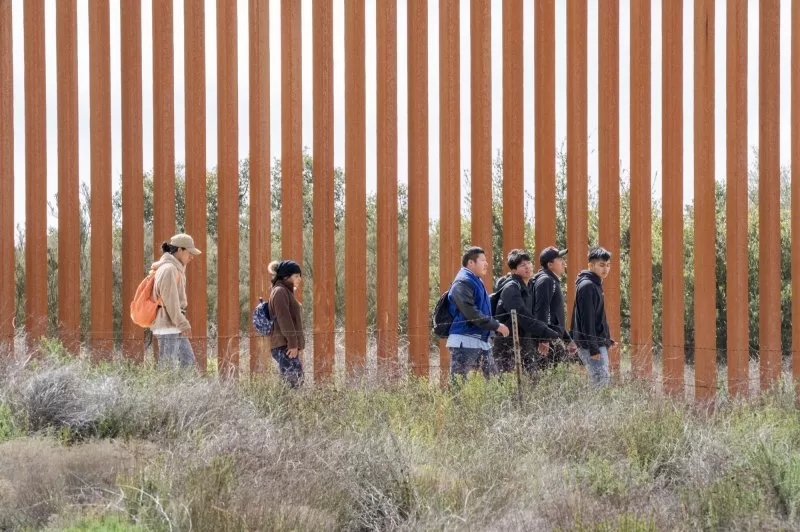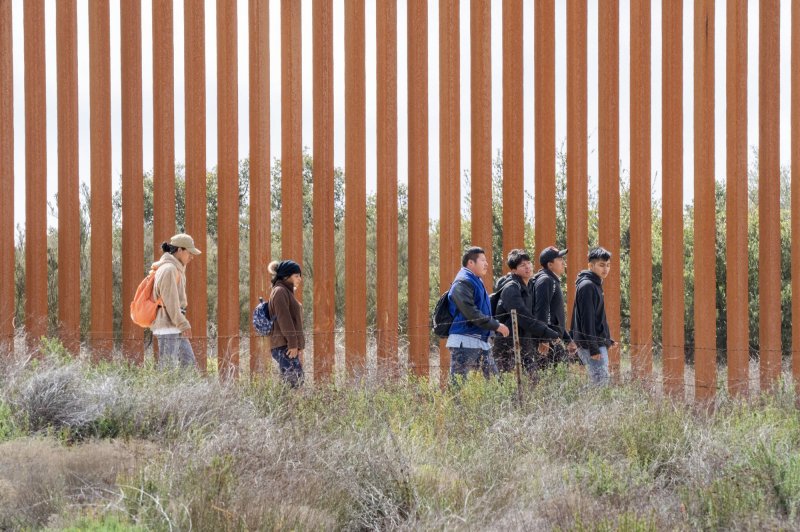1 of 4 | Hundreds of thousands of Cubans, Haitians, Nicaraguans and Venezuelans already in the United States (U.S.-Mexico border pictured) will not have their temporary legal status extended, the White House confirmed this week. File Photo by Pat Benic/UPI |
License Photo
Oct. 5 (UPI) — Hundreds of thousands of Cubans, Haitians, Nicaraguans and Venezuelans already in the United States will not have their two-year legal status extended, the White House confirmed this week.
The Department of Homeland Security said Friday it will not renew the parole of migrants from those countries who are in the United States under the program, which is referred to as CHNV.
Those with expiring parole status will need to seek legal status through other federal immigration programs, be deported or leave voluntarily.
President Joe Biden first enacted the program in October 2022 in an attempt to decrease the number of illegal crossings into the United States across its border with Mexico.
The Department of Homeland Security briefly paused CHNV to conduct “an internal review,” before implementing new safeguards designed to cut down on fraud.
Migrants who have been in the United States under CHNV have been able to apply to work legally and seek other avenues for permanent legal status.
“Potential CHNV beneficiaries should continue to monitor their myUSCIS account for updated information regarding their ATAs. Individuals with a valid, unexpired ATA are permitted to travel,” reads the latest update on the U.S. Citizenship and Immigration Services web page on the CHNV program.
As of the end of August, around 530,000 people had entered the United States under the program, U.S. government figures show.
“As initially stated in the Federal Register notices, a grant of parole under these processes was for a temporary period of up to two years,” a Department of Homeland Security spokesperson told ABC News.
“This two-year period was intended to enable individuals to seek humanitarian relief or other immigration benefits for which they may be eligible, and to work and contribute to the United States.”
Vice President Kamala Harris in September campaigned at the U.S.-Mexico border, where the flow of illegal migrants and the deadly opioid fentanyl into the United States remain major issues.

